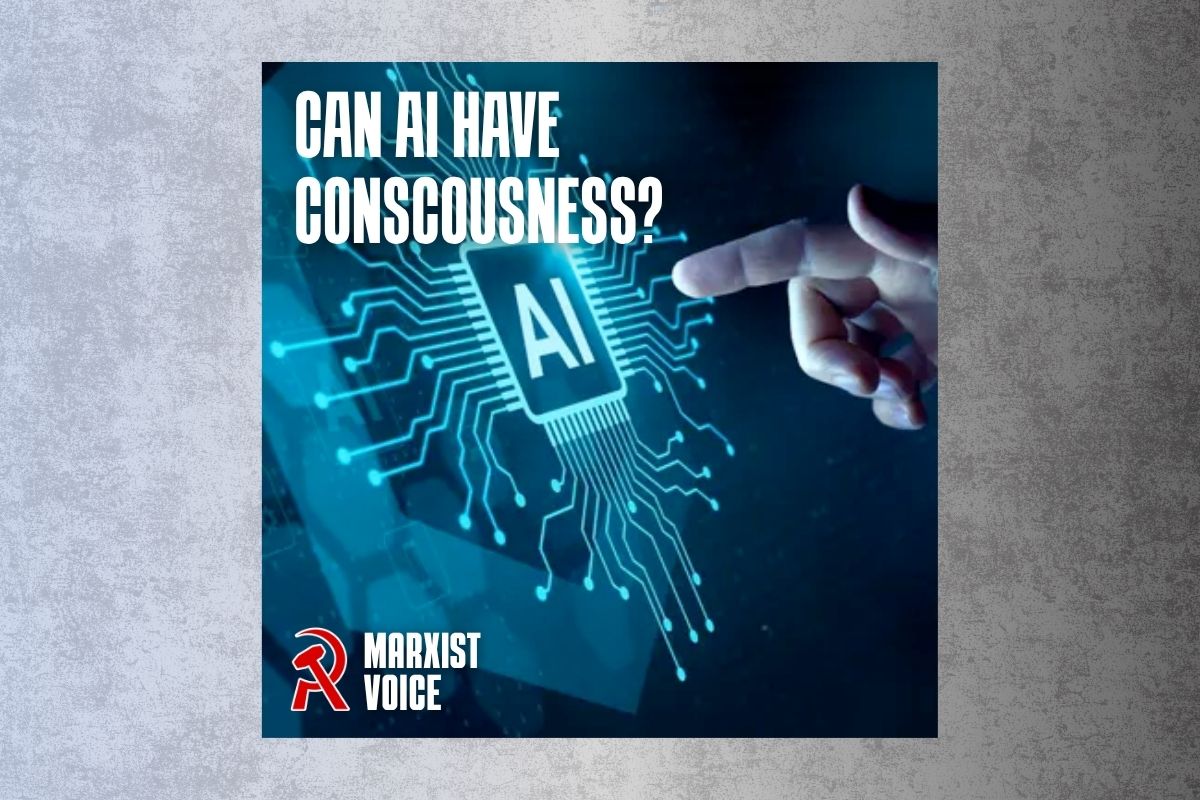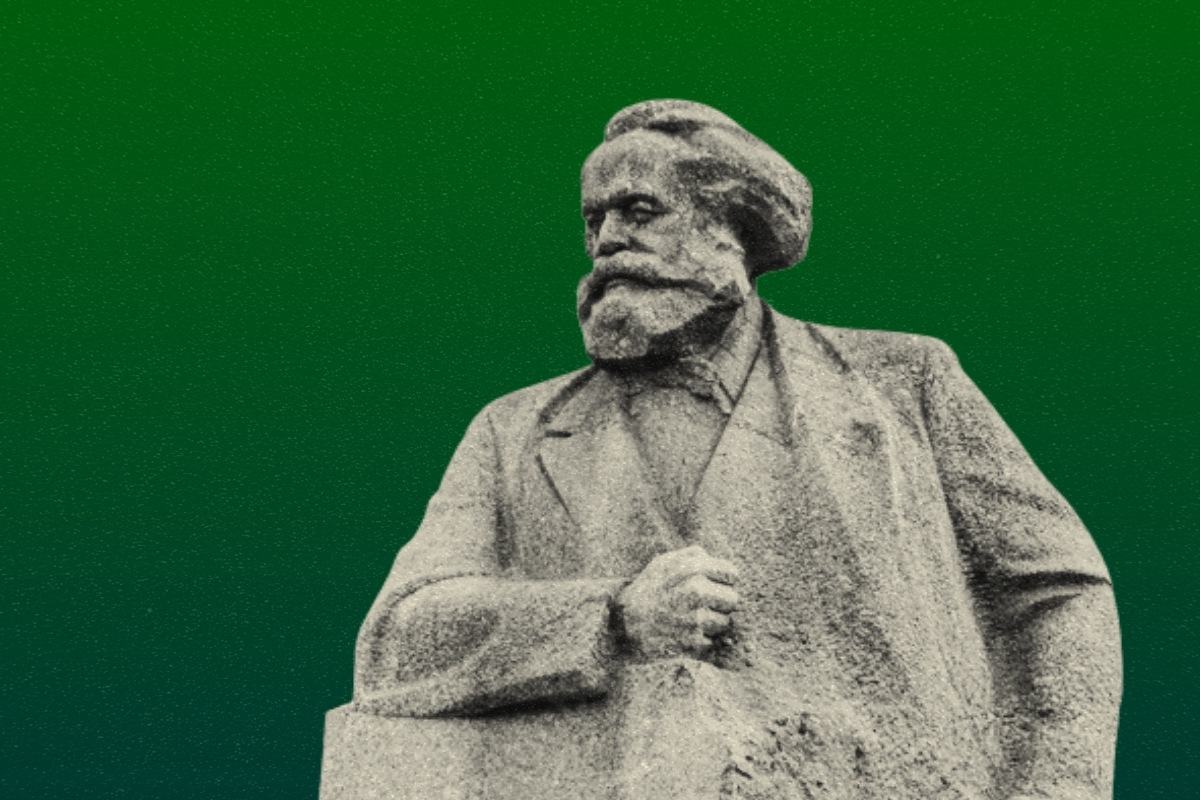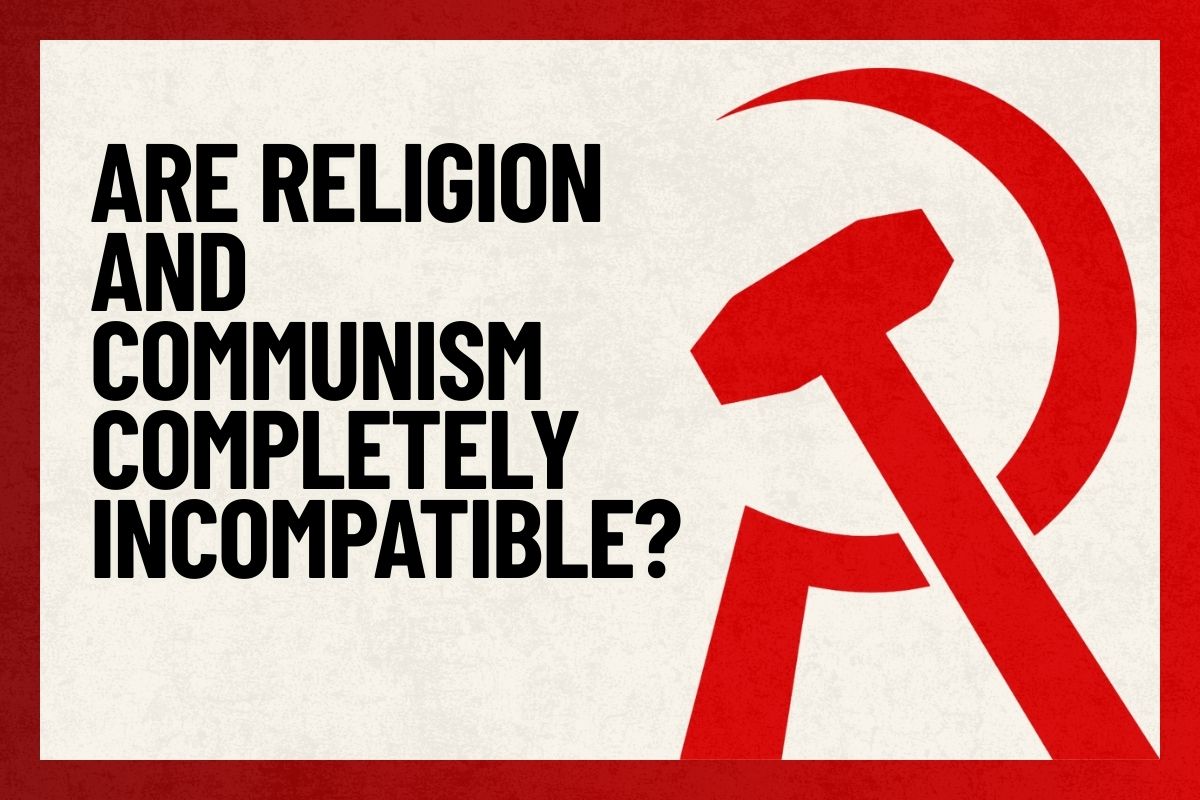Marxism attaches great importance to the question of science. Here we see both the potential for human advance and the destructive grip of capitalism. In this article, adapted from the 2002 introduction to the German edition of Reason in Revolt, Alan Woods looks at how the ideas of Marxism relate to the most recent scientific developments and the crisis of capitalism.
“There is no necessary connection between great science and great business opportunities; the general theory of relativity has yet to be turned into a money-spinner.” (The Economist, February 25, 1995.)
The last century has seen the most spectacular advances in science in the whole of history. Yet time after time we see that science cannot escape from society and politics. Albert Einstein was forced to flee from Germany when Hitler came to power, while Werner Heisenberg willingly collaborated with the Nazis, and even justified this philosophically, referring to conclusions he had drawn from quantum mechanics! Of course, this fact in no way detracts from the colossal contribution that Heisenberg made to physics but it does underline the fact that scientists cannot remain aloof from the general fate of society.
To imagine that scientists are immune to the general tendencies in society is quite unrealistic. To begin with, science finds itself completely subordinate to the demands of big business which determines which avenues of research are potentially profitable and will be funded and which will not. Needless to say, these business decisions do not necessarily correspond to the real needs either of science or society. Thus, the functioning of science and education becomes distorted by the demands of “the market” – to the detriment of everybody except a tiny handful that owns and controls the means of production.
Dialectical materialism
One of the most important advances in science since the first publication of Reason in Revolt was the amazing unravelling of the mysteries of the human genome.
The implications of this for both science and philosophy are colossal. The arguments of both Creationists and biological determinists have been blown sky-high. The position of dialectical materialism has been vindicated. While genetic elements provide the raw material for human development, it is the environment that creates the necessary conditions that determine what will become of this raw material.
It is therefore impossible to say which of the two, genes or environment, is more important; you might as well ask which of a sheet of paper’s two dimensions matters more. The question is meaningless, since human development is the result of a dialectical interaction of both. However, what cannot be maintained is that a man or woman is born to be either intelligent, rich and successful or else stupid, poor and a failure.
The limits of Capital
The potential for new technology is staggering but under the existing social order, its use will necessarily be cramped by the narrow limits of the so-called market economy. Under capitalism, science is entirely subordinated to the profit motive, as The Economist remarked in the article quoted above. Even before the results of the human genome project were announced, the big companies were planning to bring the new discoveries under their exclusive control and to milk them for the maximum profit.
This will inevitably result in endless complications, delays and legal cases that will deprive millions of men and women of treatment that they urgently need.
Once more the interests of profit come before the requirements of humanity. The fact is that science today is the slave of Capital. Its colossal potential is partly squandered by this situation. In the interests of humanity, science must be freed from the dictatorship of profit and the anarchy of the market and placed instead at the disposal of society.
Under a rationally planned economy, which is no longer the private property of a small minority, democratically controlled and managed by workers, scientists and qualified technicians, science would occupy the place it deserves and would be free to realise its vast potential to the full.
Marxism and Science
The publication of Reason in Revolt was warmly welcomed by many people, not only on the left, but also by scientists and other people interested in philosophy and the latest scientific theories, such as chaos and complexity, which in many respects reflect a dialectical approach to nature.
The latest discoveries of palaeontology, in particular the pioneering work of Stephen J. Gould (punctuated equilibria) have fundamentally modified the old view of evolution as a slow, gradual process, uninterrupted by sudden catastrophes and leaps. Gould himself has paid tribute to the contribution of Engels, who, in his little masterpiece ‘The Role of Labour in the Transition from Ape to Man,’ brilliantly anticipated the latest discoveries in the investigation of human origins.
Since Reason in Revolt first appeared, there have been a number of other spectacular advances in science – notably the human genome. These results have completely demolished the positions of genetic determinism that we criticised in Reason in Revolt.
They have also dealt a mortal blow to the nonsense of the Creationists who want to reject Darwinism in favour of the first book of Genesis. It has cut the ground from under the feet of the racists who attempted to enlist the service of genetics to peddle their reactionary pseudo-scientific “theories”.
The Big Bang
However, there was one part of Reason in Revolt that some found rather hard to digest – namely the section on cosmology, where we argued against the theory of the Big Bang. The standard model of the universe seemed to be so entrenched that it was apparently unassailable. The overwhelming majority accepted it uncritically. To call it into question was almost as unthinkable as the Pope in Rome questioning the Immaculate Conception.
However, a recent report by Paul J. Steinhardt and Neil Turok of Cambridge University has thrown down a serious challenge to the accepted wisdom. The two scientists have put forward a new model to explain how the cosmos is and where it might be going. These two scientists point out that the standard model has several shortcomings. It cannot tell us what happened before the Big Bang or explain the eventual fate of the Universe. Will it expand forever or stop and contract? These were some of the objections we raised in Reason in Revolt. And they argue – as we did – that the Universe had no beginning and it will have no end.
They propose that the cosmos goes through an endless cycle – of Big Bang, expansion and stagnation – driven by (an as yet unexplained) “dark energy”. They argue that it is necessary to take account of recent discoveries that have surprised the scientific community – such as the observation that everything in the Universe is moving apart at an accelerating rate. The apparent acceleration has since been checked and shown to be real. The standard model certainly did not predict such features!
The new model treats the Big Bang not as the moment of creation but as a transition between two cycles in an endless process of cosmological rebirth. According to this model, the Big Bang is followed by a period of slow expansion and gradual accumulation of dark energy. As dark energy becomes dominant, it stimulates cosmic acceleration. The current era is near the transition between these stages, the authors maintain.
Quantity and quality
At present, they argue, the Universe is in an expansionary phase and the current expansion will go on for trillions of years, before reaching a critical point where the process takes a new direction. Although there are many questions still to be answered (in particular the question of this hypothetical “dark energy”), the new model seems to be a vast improvement on the existing one, which states that the Big Bang was the beginning of time, matter, space and energy – clearly a mystical and unscientific conception. The new theory does away with the idea that the Universe has either a beginning or an end. It is infinite in both time and space.
The picture of the Universe presented here is one that is entirely consistent with the theories of dialectical materialism, which state that the Universe is infinite, eternal and ever changing. This does not at all preclude the possibility of a Big Bang. Indeed, we have already argued that there have probably been many Big Bangs. What it certainly does preclude is any question that matter (or energy, which is exactly the same thing) can be created out of nothing (as the Big Bang implies) or destroyed.
The new model is yet another example of the dialectical law of the transformation of quantity into quality. “The scalar field changes its character over time,” Paul Steinhardt told the BBC. “Finally, the field begins to build up energy to a point where it suddenly becomes unstable and bursts into matter and radiation, filling the Universe and driving the next period of expansion.”
It is too early to say whether this model will be verified in detail. However, what is clear is that the deficiencies of the Big Bang theory are now becoming clear and the search is on for an alternative. Whether or not the present theory is correct in its detail, the method that its authors have used – a materialist and dialectical method – is obviously correct. And, as they correctly write in the journal Science: “The ultimate arbiter will be Nature.”
Marxism and Culture
Marxism explains the development of human society, in the final analysis, in terms of the development of the productive forces.
The notion that the development of the productive forces is the basis upon which all social development depends is really such a self-evident truth that it is surprising that some people (usually with long strings of initials after their surname) still question it.
It does not require much intelligence to understand that before men and women can develop art, science, religion or philosophy, they must first have food to eat, clothes to wear and houses to live in. All these things must be produced by someone, somehow. It is equally obvious that the viability of any given socio-economic system will ultimately be determined by its ability to do this.
Nevertheless, Marx and Engels never maintained that one could reduce everything to economics. That would be a self-evident absurdity. The relationship between ideas, art, religion, philosophy and so on, and the state of development of the productive forces, is not simple and direct but highly complicated and indirect. It is a dialectical interrelation. This was clearly explained by Marx himself:
“As to the realms of ideology which soar still higher in the air, religion, philosophy etc., these have a prehistoric stock, found already in existence and taken over in the historic period, of which we should today call bunk. These various false conceptions of nature, of man’s own being, of spirits, magic forces, etc., have for the most part only a negative economic basis; but the low economic development of the prehistoric period is supplemented and also partially conditioned and even caused by the false conceptions of nature. And even though economic necessity was the main driving force of the progressive knowledge of nature and becomes ever more so, it would surely be pedantic to try and find economic causes for all this primitive nonsense.
“The history of science is the history of the gradual clearing away of this nonsense or of its replacement by fresh but already less absurd nonsense.
“The people who deal with this belong in their turn to special spheres in the division of labour and appear to themselves to be working in an independent field. And insofar as they form an independent group within the social division of labour, in so far do their productions, including their errors, react back as an influence upon the whole development of society, even on economic development. But all the same they themselves remain under the dominating influence of economic development.” (Marx and Engels, Selected Correspondence, pp. 482-3.)
The fundamental contradiction of capitalist society is the antagonism between the social nature of production and the private form of appropriation. From this central contradiction many others arise such as the universal dominion of money and the cash nexus, the alienation of the worker from the product of his labour which confronts him as a hostile power. All this creates a society in which real human relations are twisted beyond recognition and in which human nature suffers a grotesque inversion. However, this peculiar, alienated, topsy-turvy world appears to us to be normal.
Mysticism and superstition
Brutal and ugly reality must be re-interpreted in such a way as to make what is unnatural seem natural, and what is inhuman appear the inevitable result of “human nature”. In order to perform this conjuring trick, the bourgeoisie has to resort to the service of an army of intellectuals: scientists, sociologists, professors, economists, priests, teachers, journalists, philosophers, and even scientists (duplication).
For science too, despite all its illusions about itself, can be pressed into the service of the God of modern society, the only true God which capitalism worships with unbounded devotion from the bottom of its soul – Mammon, the god of wealth.
The sickness of capitalism on a world scale is not only reflected in periodic convulsions on the stock exchanges or a wave of factory closures and rising unemployment. It is a far more pervasive phenomenon that penetrates insidiously into the consciousness of men and women. Lacking a scientific explanation of events that affect their lives, sometimes in a dramatic way (such as the events of September 11, 2001), they imagine that the world has somehow gone mad.
In fact, irrational tendencies are already making their presence felt even in the richest and most “civilised” countries, including the United States and Germany.
Recently, the spotlight has been turned on the menace of Islamic fundamentalism but this undoubtedly reactionary phenomenon is by no means limited to Islam. There is also Christian, Jewish and Hindu extremism. The latter was responsible for the horrendous slaughter of men, women and children in Gujarat in India.
On the other hand, there is a growing tendency in the West (and particularly the USA) towards mysticism and all kinds of nonsensical superstition, astrology and so on. This accumulated rubbish of the past ought to have disappeared along with all the other relics of feudalism and barbarism. Instead, discredited ideas like Creationism are staging a counter-offensive and even find supporters in the scientific community. This in itself is a measure of where the senile decay of capitalism is taking us.
Although the vast majority of scientists are conscientious people who have no time for mysticism and object to the misuse of science for reactionary political purposes, there is a minority who are pursuing agendas determined by considerations that are quite outside the scope of science. Some of these have made a lot of money out of writing books with a clearly mystical and religious content.
In the United States the religious right is engaged in a furious offensive in the field of social, medical and educational policy and is receiving the backing of groups of scientists. The field of genetics has been particularly manipulated for this end.
Class society and class struggle
In his famous play The Life of Galileo, Bertolt Brecht highlights the dilemma of the man of science in a society riven with deep political and religious differences. Under threat of torture from the Inquisition, Galileo capitulates and publicly renounces his views. In return he is left alone and given a comfortable private life. But at the end of the play, in a bitter monologue, he expresses his inner torment and regret.
Like the rest of humanity, scientists, artists and other intellectuals must finally take sides. They must decide whether they wish to support the continuation of a world order that condemns the majority of humanity to a life of unending misery, poverty and ignorance, or fight for the establishment of a real new world order in which the wonderful achievements of science will be used to eradicate these evils and build a new civilisation that is really worthy of the name.
In the battle to determine the fate of our world and humanity itself, no-one can remain neutral. Those who attempt to do so are in practice supporting the present order. In any case, it will not be possible to remain indifferent to politics forever. Sooner or later, everyone will be affected by the crisis of capitalism. There is no escape.
We are faced with two alternatives: we either allow the greed of a handful of big corporations to ravage and destroy the planet, plunging the world into new and ever more destructive wars and convulsions, or we strike out boldly in a new direction.
Depending on the result of this struggle, the achievements of science can either be the means of the destruction of humanity, or the vehicle that will carry us to the stars and create a paradise on earth. This is a great cause: the only one that is worth fighting for.
Reason in Revolt is available to purchase from Well Red Books






